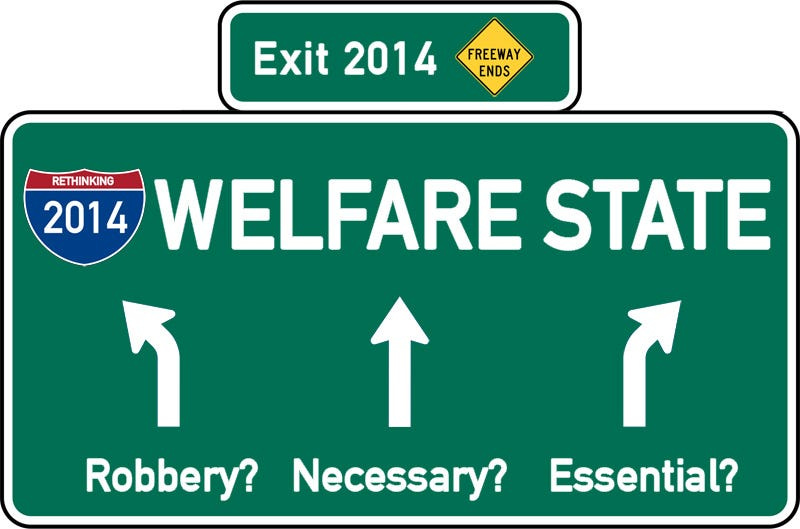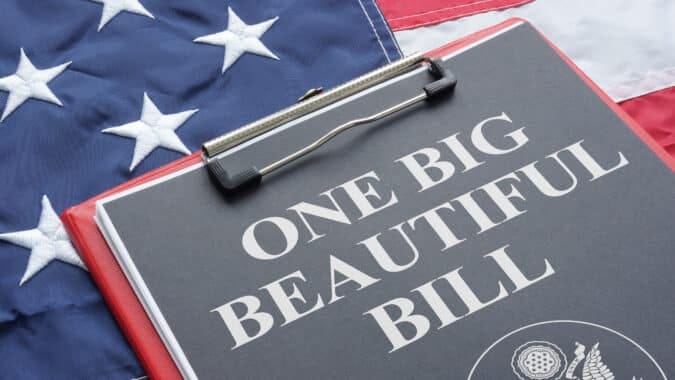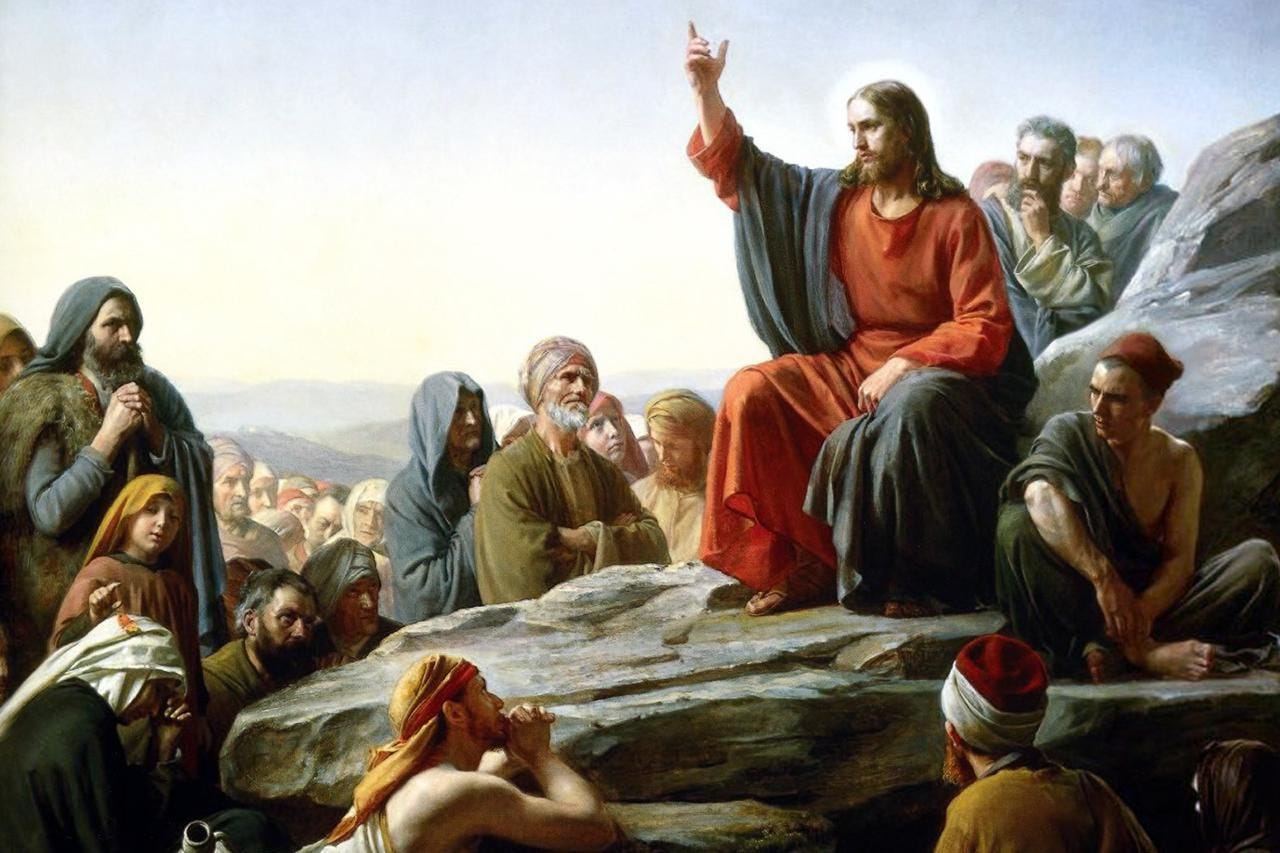Time to Shrink Government Welfare
The One Big Beautiful Bill: A Great Opportunity for the Church
We are in need of moral renewal, considering that we are encountering moral confusion, economic fragility, and governmental overreach; as a society we must decide whether we will be ruled by bureaucratic stagnation or biblical revival. The One Big Beautiful Bill Act (OBBBA), recently analyzed by the American Enterprise Institute, represents such a crossroads. Yet while the bill offers substantive reforms aimed at reawakening American agency and dignity, its reception in Catholic circles has been mixed. The recent statement by the president of the United States Conference of Catholic Bishops (USCCB), expressing concern over the bill’s potential impact on the vulnerable, illustrates the need for measured discernment rooted in Catholic social teaching. I saw their reaction and spent a few days thinking carefully about it.
I realized that this is not the hour for reactionary rhetoric. Catholics must read the bill itself, not just interpret it through media filters. We must engage its contents through the integrated lenses of Scripture, the Magisterium, economics, and prudence. For beneath its policy proposals lies a deeper philosophical question: Will our society continue to entrust the care of souls to a faceless state, or will it return to the subsidiarity and moral accountability that once marked Christian civilization?
The Welfare State: A Crisis of Compassion and Dependency
Since the Great Society programs of the 1960s, the American welfare state has ballooned into a bloated mechanism of dependency. In the name of helping the poor, it has institutionalized poverty, fractured families, and eroded personal responsibility. In Black communities especially, we have witnessed the disintegration of the family unit, with out-of-wedlock births soaring from 25% in 1965 to over 70% by the 1990s. This is no mere coincidence; it is the consequence of a system that subsidizes fatherlessness and disincentivizes work.
Catholic social teaching has long warned against this. Pope John Paul II, in Centesimus Annus, wrote that when the state takes over responsibilities that belong to families and communities, it “leads to a loss of human energies and an inordinate increase of public agencies.” He added that the welfare state becomes a “Social Assistance State,” one that suffocates initiative, moral responsibility, and local solidarity. Marvin Olasky’s The Tragedy of American Compassion captures the point well when he says, “Government welfare cannot replace the personal relationship, moral encouragement, and spiritual accountability that true charity requires.” In other words, only persons, not programs, can restore the human soul.
What the Bill Proposes: Reforming with Purpose
The One Big Beautiful Bill Act, as AEI’s Scott Winship outlines, seeks to consolidate America’s convoluted welfare apparatus into a streamlined, work-oriented benefits system. Instead of a maze of overlapping programs—each with its own rules, penalties, and perverse incentives—the bill introduces a unified Family Benefit. Critically, it ties this benefit to work and household stability. This is not cruelty masquerading as reform. It is justice tethered to dignity.
For the taxpayer, it simplifies the tax code, reduces marginal tax penalties for the working class, and makes earnings more rewarding. For the family, it eliminates marriage penalties, thereby encouraging stable two-parent households, which are the greatest predictors of intergenerational mobility. For the labor force, it restores the biblical and economic link between provision and work. As St. Paul wrote: “If anyone is not willing to work, let him not eat” (2 Thess 3:10). This is not a denial of mercy, but an affirmation of human vocation. Man was made to work, to create, and to contribute to the common good. For subsidiarity, it reduces federal interference and opens the space for communities—especially churches—to take up their rightful place in the work of mercy and justice.
Addressing Legitimate Concerns
Still, prudence demands we acknowledge valid concerns. Transitioning from the current welfare system to a streamlined one may cause short-term dislocations. Vulnerable families may face temporary gaps in support, especially in states or regions with weak local infrastructure. Uniform federal standards may overlook regional cost-of-living differences, potentially disadvantaging certain demographics. There is also the risk that local institutions will not rise quickly enough to meet new responsibilities. But it is precisely here that the Church must rise.
Instead of viewing the bill as a retreat from compassion, Catholics should see it as a divine invitation to reclaim the Church’s historical role as the center of spiritual, moral, and material care. Where the state pulls back, the Church must step forward—not only with charity, but with formation, fraternity, and the Gospel.
The Church’s Subsidiarity in Action
The Catechism teaches: “A community of a higher order should not interfere in the internal life of a community of a lower order” (CCC 1883). That is the principle of subsidiarity, and it is ignored to our collective peril. The Church, by contrast, flourishes when subsidiarity is honored. Catholic schools, parish ministries, St. Vincent de Paul societies, crisis pregnancy centers, job placement outreaches, and local Catholic Charities affiliates are all positioned to serve as agents of transformation. Not merely distributors of aid, but builders of community. Ismael Hernandez, founder of the Freedom and Virtue Institute and former Marxist, argues that “true help must appeal to the human capacity to rise above misery and take control of one’s own life.” This is the Catholic view of the human person: created in God’s image, marred by sin, yet capable of virtue through grace and responsibility. Big government cannot deliver that. Only the Church can. We must not fear a world with a smaller welfare state—if the Church is willing to become once again the hub of moral formation and communal renewal. Alexis de Tocqueville warned against “soft despotism,” where people surrender their liberty for comfort and look to the state for all things. This is a slow death of the soul. The only antidote is revival—revival of family, of work, of worship, and of civic virtue.
Solidarity and Subsidiarity: A Path Forward
Solidarity requires we care for the poor. But subsidiarity demands we do so through structures that promote human agency and local responsibility. The OBBBA, while not perfect, moves the needle in the right direction. It re-anchors economic aid in work, family, and virtue. It trusts individuals and communities more than bureaucracies. It creates space for the Church to lead. It is now up to us. Let our parishes become centers not only of worship, but of economic mentorship, fatherhood restoration, education, addiction recovery, and business formation. Let our laity, formed in Catholic social teaching, become entrepreneurs of justice and disciples of mercy. Let bishops and pastors not just critique policy from afar, but guide their flock into courageous charity on the ground. As Pope Benedict XVI wrote in Deus Caritas Est, “The Church cannot neglect the service of charity any more than she can neglect the Sacraments and the Word.” This is our Eucharistic witness: to break bread in communion with the poor, not through distant government programs, but through incarnational love.
Becoming the Church of the Beatitudes
The One Big Beautiful Bill Act represents more than a political proposal. It is a providential moment to examine our fidelity to Catholic social doctrine and our trust in God’s design for society. Government, at its best, is a facilitator—not a father, not a redeemer. That role belongs to God, and to His Body, the Church. Let us not cede to the state what belongs to grace any longer. We did this once before and we are reaping its ugly fruits today. Let us not fear responsibility. Let us rise—through subsidiarity, through solidarity, through sanctity—and become once again the Church of the Beatitudes, where the poor find more than policies. They find Christ.







